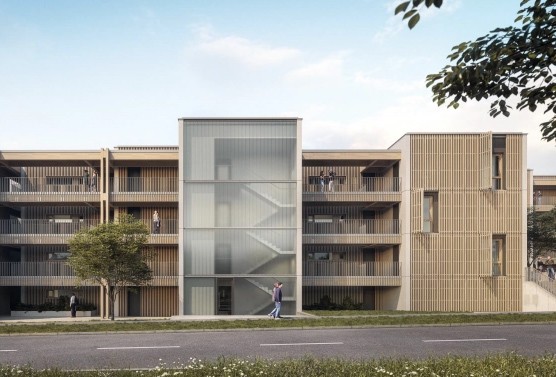
OECD: Unaffordable housing in the Czech Republic is increasingly affecting more people, concerning both the young and the elderly
 |
According to OECD experts, affordable housing in the Czech Republic is one of the greatest social challenges. According to the organization's index, property prices have increased by more than 30 percent from 2008 to 2024. This is slightly more than the average increase across all OECD members. Rental prices in the Czech Republic almost doubled during the same period. According to data from the technology consulting firm Deloitte, at the end of last year, the average price per square meter in an apartment was 110,100 crowns. The rental rate was 309 crowns per square meter per month, but it has since continued to rise. In the first quarter of this year, it was already 316 crowns per square meter.
The OECD notes that piecemeal measures are insufficient to address housing accessibility; a long-term and coordinated strategy is needed that connects housing policy with urban planning, the tax system, and social services. "Affordable housing is one of the most discussed issues of today. Recommendations focused on urban planning, financing, and legislation form the basis for our reform, which aims to improve the lives of thousands of households and strengthen the country's economy," said Minister for Regional Development Petr Kulhánek (for STAN).
The OECD recommends that the Czech Republic support the emergence of non-profit housing providers. A legal definition of affordable and social housing should also be established, along with a follow-up financing system for the long-term and sustainable development of this type of housing. Clear rules and mechanisms for cooperation between municipalities and non-profit organizations should be created to expand the supply of quality and affordable housing. In the Czech Republic, there is a grant program for the construction of affordable rental apartments. The current government has also approved a law on housing support, which is intended to help people at risk of housing distress find affordable accommodation.
However, the study highlights that the current form of urban planning often creates obstacles to faster housing development. Barriers should be removed, and coordination between municipalities, government administration, and other stakeholders should be strengthened. It is also necessary to expedite the approval of new projects and enhance municipalities' motivations to permit new developments.
Property taxes should be reformed. The OECD proposes that the tax become a better source of income for municipalities, which could use these funds to finance the construction of affordable housing and strengthen infrastructure. The existing housing stock should also be utilized more effectively, and the share of unoccupied apartments should be reduced.
Poland also faces a similar problem with housing accessibility. According to the study, access to affordable housing is a central political challenge in Poland, especially for low- and middle-income households and socially vulnerable individuals. Poland should focus on expanding the supply of affordable housing, ensuring housing for people requiring social and health support, and assisting in adapting apartments for seniors and persons with disabilities.
While in the Czech Republic the share of unoccupied apartments is about 16 percent, in Poland, it is 12 percent. The demand for housing in Poland has also increased due to the influx of refugees from Ukraine, with over a million arriving since 2022. According to the Czech Ministry of the Interior, over 581,000 Ukrainians lived in the Czech Republic at the end of June, accounting for 53 percent of the total number of foreigners.
The English translation is powered by AI tool. Switch to Czech to view the original text source.
0 comments
add comment
Related articles
0
06.11.2025 | Analysts: Housing construction in the Czech Republic is still insufficient and is pushing prices up
0
30.10.2025 | The government has approved the calculation of rent in state-supported affordable housing
1
17.08.2025 | The housing support law could target more people
0
16.04.2025 | Experts welcome the adoption of the housing support law, they wanted a more progressive form
0
21.02.2025 | The Lidovci will demand an increase in the allocated amount for the construction of affordable housing
0
07.02.2025 | Support for the construction of affordable housing has been requested by 92 projects for CZK 5.1 billion
0
26.10.2024 | About the funding for the construction of affordable housing, 70% of municipalities are interested
0
04.09.2024 | Bartoš does not expect that the government would not release funds for the construction of affordable housing
0
26.06.2019 | Czechia is collecting signatures for setting rules for affordable housing in the EU









